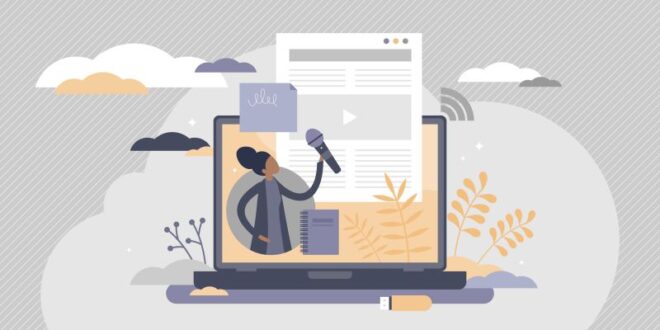Focus groups and individual interviews are both excellent means of collecting data and information to support your M&E work. Both collect qualitative information directly from participants and should provide detailed and rich data. But knowing which one to use in certain circumstances is key to getting the most out of these research methods. In fact, neither is better, nor worse – they serve very different purposes and should be used at different times.
What is a Focus Group?
A Focus Group is a structured discussion groups, which aims to gather critical information about beneficiaries. A focus group is a small, but representative, sample of people who are asked about their opinions on a particular topic. The responses are then used to generate insights and understanding about that topic. Focus groups can be an effective way to gather information because they provide a forum for open discussion and allow for the exploration of different viewpoints. They also offer the opportunity to build rapport and relationships with participants. When conducting a focus group, it is important to have a clear purpose and objectives. The questions should be well-crafted and relevant to the topic at hand. Additionally, the facilitator should create an environment that is conducive to open dialogue and respectful of different perspectives.
What is a one-on-one interview in the context of M&E
A one-on-one interview is, as the name suggests, an interview between the practitioner and one programme participant. Interviews may be highly structured, or they may be open ended, depending on what you would to achieve in your data collection. Semi-structured interviews are most frequently used, providing the best of both, but in this event, it is necessary to be mindful of not asking leading questions – that is questions that might bias the answer. Keep the structured questions to the letter and carefully consider the sequence of questioning.
What are the benefits of each?
Both have many benefits. While focus groups allow you to gather information, and then gather insights on its validity by assessing the responses across a group of participants, interviews will allow you to go into a great deal of detail, from a single perspective. Focus groups can help to build an evaluation story, as participants collaborate and grow their learning and reflections together. Focus groups allow for a level of diversity of opinion as many are contributing their views, and help you form a fuller picture as you observe participants agreeing and disagreeing with shared sentiments.
Interviews allow for an in-depth exploration of what is taking place and allows individual participants more privacy in their responses. In a 20-minute interview where an interviewee feels safe and protected, you can gather a great deal of insight on personal transformations that have taken place. Interview can be powerful tools to gather rich and deep information on individual participants.
Benefits of Focus groups
1. You can gather information and then get insights on its validity by assessing the responses across a group of participants.
2. Focus groups help to build an evaluation story, as participants collaborate and grow their learning and reflections together.
3. Focus groups allow for a level of diversity of opinion as many are contributing their views, and help you form a fuller picture as you observe participants agreeing and disagreeing with shared sentiments.
Benefits of One-on-One Interviews
1. You can go into great detail from a single perspective.
2. You can explore different aspects of the topic in depth with each interviewee.
3. Interviewees might feel safer to express themselves.
What are the downsides of each?
In a focus group, it is inevitable that some participants may provide more information than others or provide it in such a way that others may not feel free to speak. This may particularly be around sensitive issues – and potentially, the very issues you are aiming to evaluate! Try to observe the average speaking time, or design focus group activities to ensure that all participants have a voice. As these discussions are more open, it may be easy for bias to arise, or for opinions to be shifted in group situations. It may be that you run a short, anonymous poll at the start to gather a baseline, and again on closure so that the focus group provide a few data points.
Interviews can be costly and time consuming, Interviews are best held face-to-face which can entail travel, and significant organisation if you need to run a series. For large programmes, many argue that only a few opinions do not constitute particularly powerful data – and a sample smaller than 20% is really only useful for telling stories of impact. Interviews can also be very tricky to interpret and may involve thematic analysis which is difficult to rely on when you only have a small number of responses.
When should I consider using them?
Consider an interview for complex programmes which take a detailed approach to personal transformation. When you are interested on how individual participants have found the programme, and where these participants had highly differentiated needs which were to be addressed, then an interview would work well. If you are aiming to produce a case study along the lines of individual stories of transformation and overcoming adversity, then an interview would be the better option.
Choose a focus group where you are implementing ongoing monitoring and you need an efficient way of gathering a diversity of opinions, and where you are aiming to assess levels of participation, and to observe opinion sharing to get differing views on key issues. If your aim is to keep participants involved and you are running a series, it is helpful to create an observation instrument for what is working, so you can monitor your monitoring and get the most out of successive focus groups. Focus groups can provide powerful insights based on themes you already understand so if you are quite clear on what you’re expecting to see, testing this hypothesis in a group setting can provide powerful and systematic insights.
It is either/or then?
Researchers will frequently use both methods in a single evaluation depending on what they want to understand, measure and achieve. It is definitely not a case of either/or, but should rather be viewed at the project level, to decide what the evaluation outputs are, how these will be measured, and which is the best approach for each indicator. Build your research methods approach from an understanding of your impact framework, and which KPIs and reporting formats are best suited to each. Design your questions well, and consult online resources for best practice, or meet with academics and researchers to validate your approach.
Ask yourself a number of key questions:
- What KPI am I measuring for in this activity? How would the data be best?
- How will I make the outcome of the research systematic? What is important in this event – sample size or detail?
- What questions should I ask? Is there a set of global best practice questions linked to my KPIs and can I replicate these?
- What kind of issues am I dealing with? If this highly sensitive and more suited to an individual approach? Or is there the potential to gain key insights from a trusted group even if issues are potentially sensitive?
- How much time and funding do I have, where are my target participants located and what is the possibility of coordinating people in either individual or group sessions?




